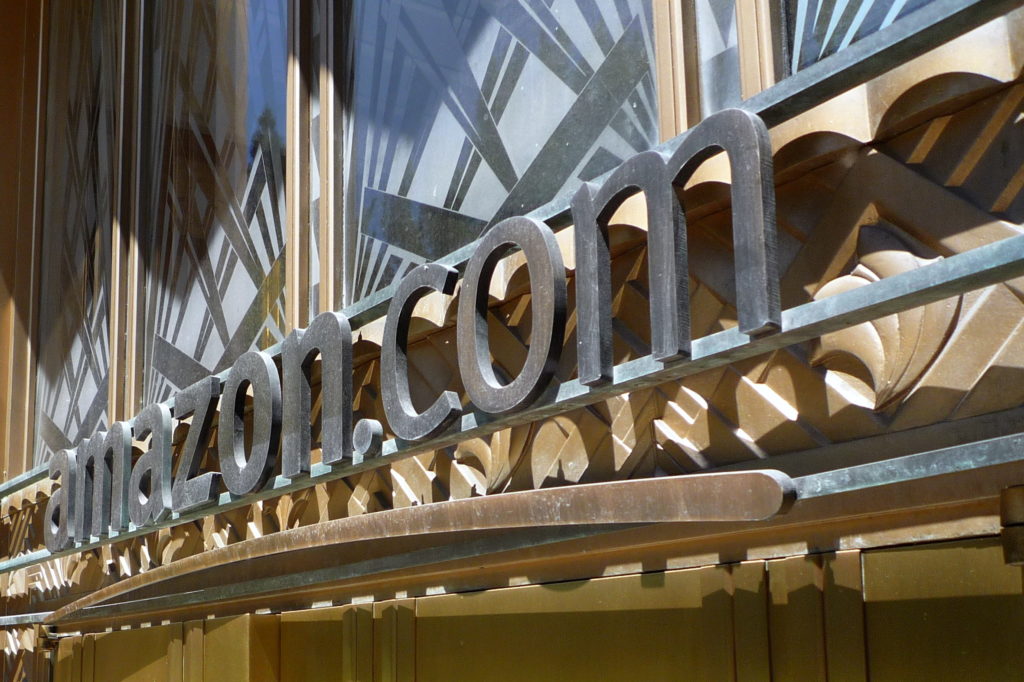By Ava Sasani, news staff
Boston is one of 20 cities across North America selected as a finalist for the site of Amazon’s new second headquarters.
The tech giant announced the search for its second headquarters, which it calls HQ2, in September 2017, enticing 238 cities into a competitive, lengthy bidding process. According to Amazon’s own estimation, the chosen city stands to gain 50,000 high tech jobs.
Mayor Martin J. Walsh has passionately advocated for Boston to become the site for Amazon HQ2.
“I am proud that Boston is on Amazon’s shortlist for its second North American headquarters,” Walsh said in a statement on Jan. 18. “As a thriving city with a talented and diverse workforce, culture of innovation and opportunity for all, I see no better city than Boston for Amazon to call their second home.”
If Boston is selected, the Amazon HQ2 site would be built on Suffolk Downs, a horse racing track in East Boston that has not regularly held live races since 2014.
Walsh submitted Boston’s 109-page bid in October 2017, attempting to attract Amazon with the proposal of an Amazon Task Force. The Amazon Task Force would be a set of paid city employees who would broadly assist Amazon interests. For example, a special permitting official will be designated to help ease Amazon HQ2 through the zoning and permitting process.
In addition to the Amazon Task Force, Boston’s bid offers tax incentives to attract Amazon HQ2. Boston’s bid does not specify the amount in tax breaks that Amazon would receive, and the city has not released any further details. In comparison, the nearby city of Worcester has offered Amazon $500 million in property tax breaks.
Michael Dukakis, the former governor of Massachusetts and 1988 Democratic presidential candidate, said he is skeptical of the usefulness of tax breaks to entice Amazon and other major companies.
“I have no problem helping companies who want to locate or expand in Massachusetts, but I am firmly opposed to any so-called ‘tax breaks’ for them,” said Dukakis, who is currently a professor of political science at Northeastern University. “We never did it when I was governor, and I think it is bad policy. Once you start doing it, company after company will be looking for them, and they badly erode the state’s tax base.”
In 2016, Walsh and the City of Boston offered General Electric, or GE, $25 million over 20 years in property tax incentives to relocate the company’s headquarters to Boston. Though the long-term impact of the GE move is still unclear, last fall GE announced cutbacks and limited downsizing in Boston.
After watching the outcome of the GE headquarters unfold, labor and community activists are raising concerns about Amazon HQ2. Massachusetts Jobs with Justice, a coalition of advocacy groups working toward improved labor rights within the state, was one of roughly 100 labor activist groups across the nation last October to sign onto a “wishlist” for Amazon: a list of expectations that workers and residents of bidding cities expect Amazon to deliver on. The wish list includes genuine job creation, community support and corporate accountability.
“Basically what we do is we say ‘It’s great if you want to move into Boston because we need the jobs and we love technology and we love convenience … But, you have to meet our community standards,’” said Gillian Mason, an interim director of Massachusetts Jobs with Justice. “The community standards that are outlined in the letter that we signed onto really outline our principles on big business moving into our cities in general.”
One of the coalition organizations of Massachusetts Jobs with Justice is the Labor Guild Archdioceses of Boston. Founded in 1945, the Labor Guild advocates and teaches collective bargaining techniques to promote healthier labor leadership.
Allison Every, Executive Director of the Labor Guild, said she is troubled by Amazon’s management techniques. According to Business Insider, Amazon warehouses across the United States and Europe have created well-documented, unworkable conditions for employees.
“I imagine their conditions for white collar workers out in Seattle are better, but there’s a real weariness about Amazon and Jeff Bezos as good employers,” Every said. “What will be the impact on the entire area’s workplace?”
Every also expressed concerns about the ability of Amazon to deliver on job promises, citing a study by the Economic Policy Institute released last Thursday. The study, entitled “Unfulfilled Promises,” found that new Amazon fulfillment centers do not provide a net job increase because the new manufacturing jobs created by Amazon are offset by losses in other industries.
Amazon has promised that HQ2 will create high tech, high paying jobs distinct from a regular Amazon fulfillment center, yet the study still raises concerns: Labor advocates and constituents wonder if Amazon’s warehouse job estimates are inaccurate, will Amazon HQ2 actually bring 50,000 new high tech jobs?
“They’re not terribly enlightened employers, from all indications,” Every said
City Councilor Lydia Edwards, who represents the East Boston neighborhood where Suffolk Downs is located, has advocated for Amazon HQ2.
“[Councilor Edwards] sees this as a moment for what it is: an opportunity for the East Boston community to lead,” said Gabriela Coletta, Edwards’ chief of staff. “She would want community members — people who will be directly impacted by the project — to be a part of the conversation.”
Paxtyn Merten contributed to this story









